David Moore has written to us about his father, Lance Corporal David Moore, who served with the London Irish Rifles during the Second World War:
“My father was born on 18th February 1917 in Airdrie. His Army number was 3249725 and he served in the Cameronians before joining the LIR and then joined the RASC when he returned from POW camp in June 1945 until he received his release papers on 17th February 1946.
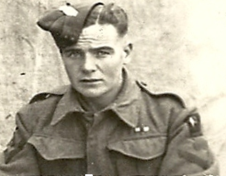
Somewhere in Italy, Xmas Day 1943.
My father served in the 2nd Battalion, London Irish Rifles from 26th November 1942 until 13th June 1945. During this time, he was in Tunisia and Italy but was wounded and taken prisoner in January 1944. He was eventually sent to Lamsdorff POW camp and, in 1945, was forced to take part in “The Long March” across Europe. He survived this horrendous journey but, as with many old soldiers, my father wouldn’t talk about his experiences in later life – something I now very much regret especially as I spent my working life as an historian.
I received his Army records recently and these helped greatly in clarifying some details of his time with 2 LIR. He was indeed transferred to the Battalion on 26.11.42 and, according to his records, he fought in North Africa from December 1942 until the fall of Tunis in May 1943. It may be of interest to you that he was in E Company and was promoted to Lance Corporal in April 1943.
My father was subsequently sent to Sicily and you are very familiar with E Company’s movements there – then onto mainland Italy. He was with the 2nd Battalion all the way up the Adriatic coast and then was at Campobasso at Christmas 1943. Unfortunately, he was in 7 Platoon, under the command of Nicholas Mosley, on the morning of 19th January 1944 at Montenero Val Cocchiara when his platoon was overrun – he was with Mosley at his tent when a shell exploded nearby and was wounded in the side of the head and arm. Sergeant Sale was tending my father’s wounds when they were surrounded and captured.
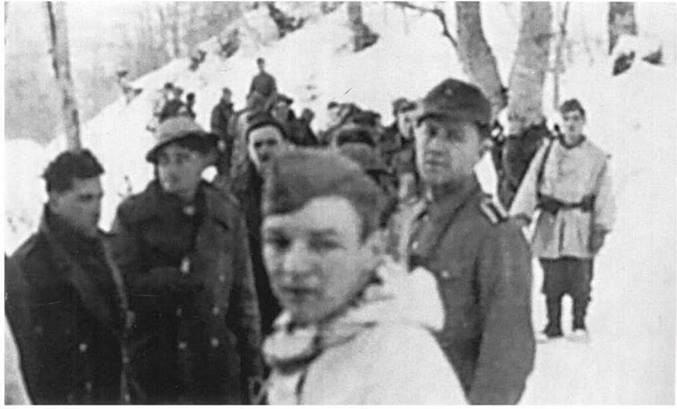
My father is specifically mentioned twice by Mosley in his account of the event – firstly, his wounding and secondly, when he was a prisoner being led away by his captors. His army records note that he was taken prisoner at “Alvadene” but this is not correct, though I suspect that he was taken from the mountains near Montenero to Alfedena down in the valley. My only recollection of my father’s account of this episode is how angry he was at Mosley but I can only speculate as to the reasons. In one report I read, it suggested that, after Mosley was freed by Major Mervyn Davies, he would return to Montenero to face some “awkward questions”.
Further details of the German raid at Montenero are given below:
In the grip of an Italian winter high in the Apennines, 2 LIR were in the Castel de Sangro area where they took up defensive positions in blizzard conditions on New Year’s Eve. The nights were long, daylight was in short supply in the middle of winter and the weather was atrocious as they were high in the mountains and suffering freezing conditions.
In January 1944, he was a Lance Corporal in 7 Platoon of E Company of the 2nd Battalion London Irish Rifles with each company taking turns on the front line in exposed forward positions on a mountainside opposite the German line near the small town of Montenero Val Cocchiara.
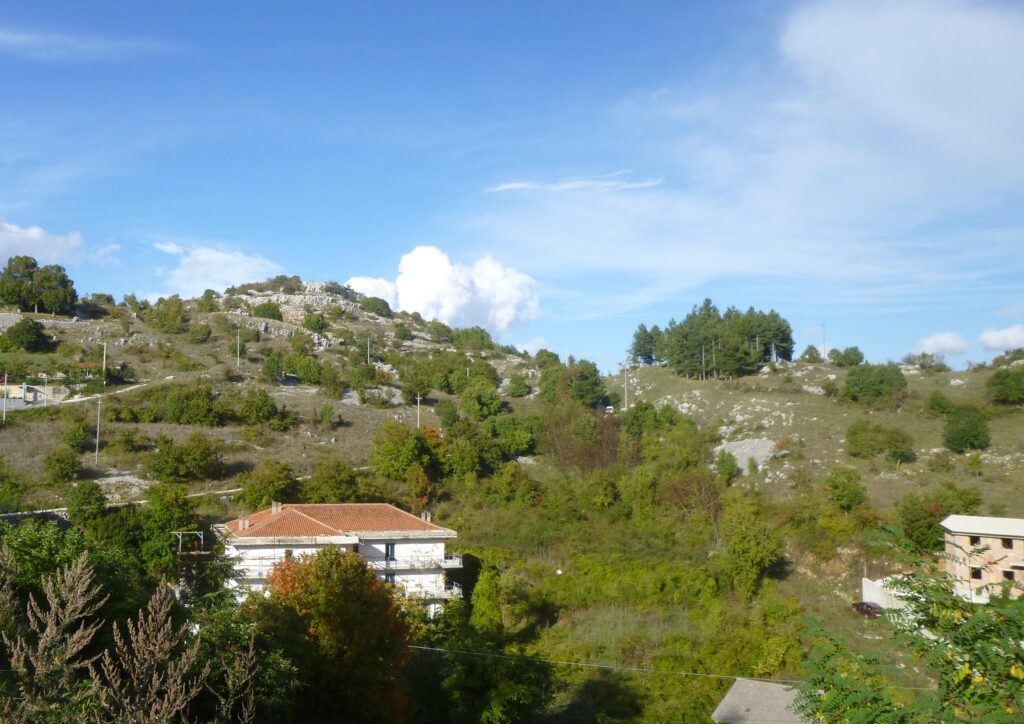
There was some shelling on the night of 18th January – the prelude to the dramatic events of the following morning. The Germans had fired shells towards the positions held by 7 and 9 platoons so it appeared that they knew the soldiers were there and a dawn raid was anticipated but did not materialise and perhaps the soldiers dropped their guard. At 08.30, while L/Cpl Moore was with the Section Commanders at Lieutenant Nicholas Mosley’s tent receiving orders for the day, a shell exploded in or near the tent and all of the Section Commanders were wounded.
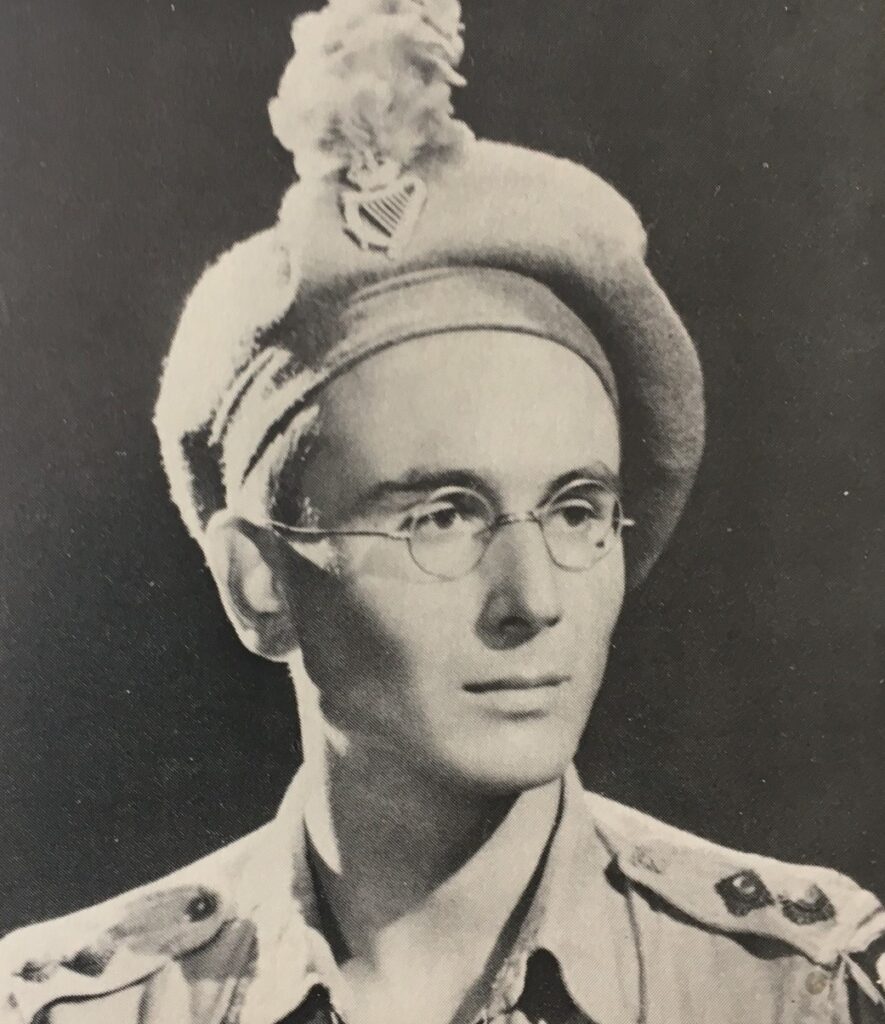
According to Lieutenant Mosley’s account:
“At Calvario on the 19th January at 08.30hrs a Platoon ‘O’ Group was assembled to receive orders in the Platoon HQ tent when a shell hit a tree about a yard from the door of the tent…. I immediately ordered the platoon into their trenches….. In the next trench Sgt Sale, himself wounded in the wrist, was trying to bandage L/Cpl Moore who was bleeding from the side of the head and the arm.”
By the time Mosley got out of the tent, the entire platoon had been surrounded and was being disarmed by the Germans. They had materialised out of the woods wearing white smocks armed with machine guns, grenades and with bayonets fixed. The men of 7 Platoon had no chance and surrendered rather than be killed. Lieutenant Mosley saw L/Cpl Moore and Sgt Sale being led away by the Germans as prisoners but escaped himself.
L/Cpl Moore was transferred from Alfedena to Florence where he spent a month in hospital having his wounds attended to. When he awakened on arrival, he thought that “he had died and gone to heaven” when he saw the nuns all dressed in their white uniforms and wimpoles. That period in “heaven” didn’t last long as he was then moved to the POW camp, Stalag 344, at Lamsdorff in Poland.
From February 1944 to January 1945: A Prisoner of War in Poland – a time my father didn’t say very much about. On his release, he said that his treatment had been reasonable, although food was in short supply. Red Cross parcels helped to keep him alive.
21st January to 2nd April 1945: Everyone was ordered to leave the camp and to begin what became “The Long March” west away from advancing Russian troops. L/Cpl Moore and the other men spent the next ten weeks walking between fifteen and thirty kilometres most days until he was finally released by Allied soldiers and repatriated to the UK. He suffered all the privations recounted by many who took part in and survived this horrendous experience including bitter cold and extreme hunger. I recall my father speaking about it only once, recalling the kindness he and a pal were shown by a German woman who cooked them a good meal when they had arrived with only a handful of rice they had asked her to boil up for them. By the time he got home, he was suffering from flat feet, damaged ankles and metatarsalgia as a result of prolonged standing.
14th June 1945: As a result of his injuries, my father was transferred to the RASC, where he remained until he was released to the Royal Army Reserve on 13th May 1946.
For his war service, L/Cpl Moore was awarded The 1939-45 Star, The Africa Star, The Italy Star, The War Medal 1939-45 and the Defence Medal.
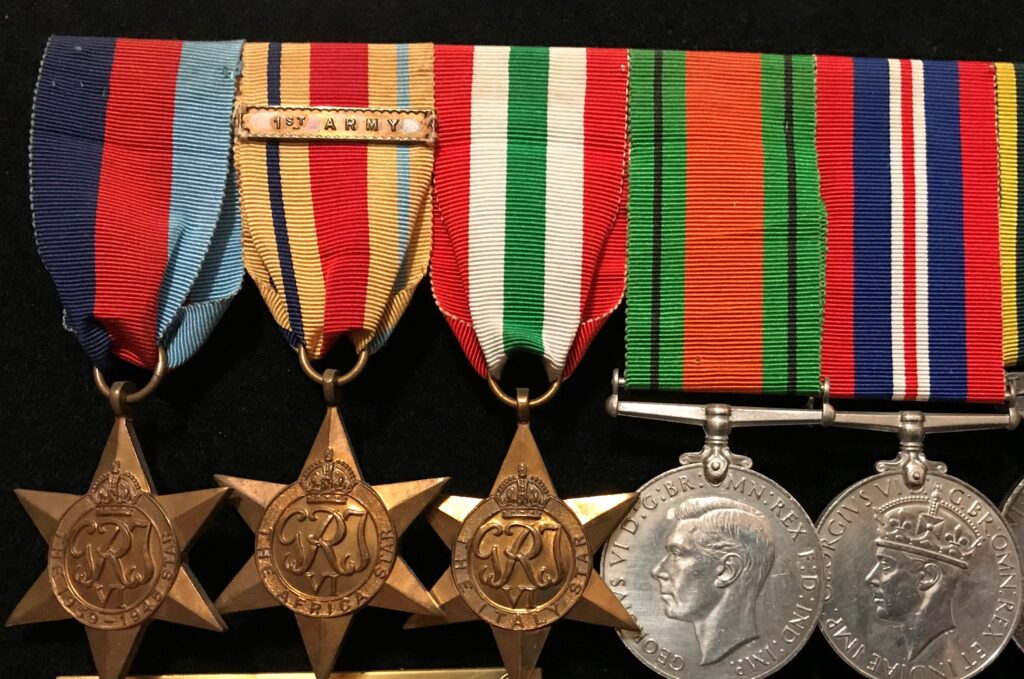
1946 to 2009: David was happily married to Sadie, who he had married in 1942, just before he joined the London Irish Rifles and they were together for just over 66 years. They had two children, three grandchildren and two great grandchildren who knew him, and three further great grandchildren born since his death in Airdrie on 9th January 2009.”
A remarkable long life and cetainly well lived.
Quis Separabit.